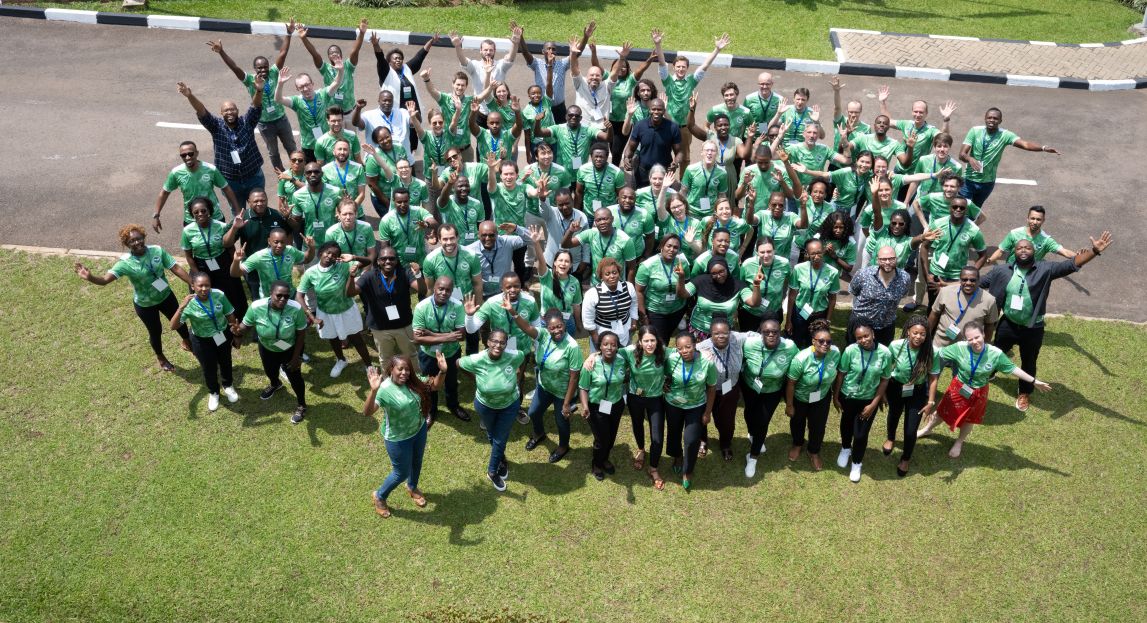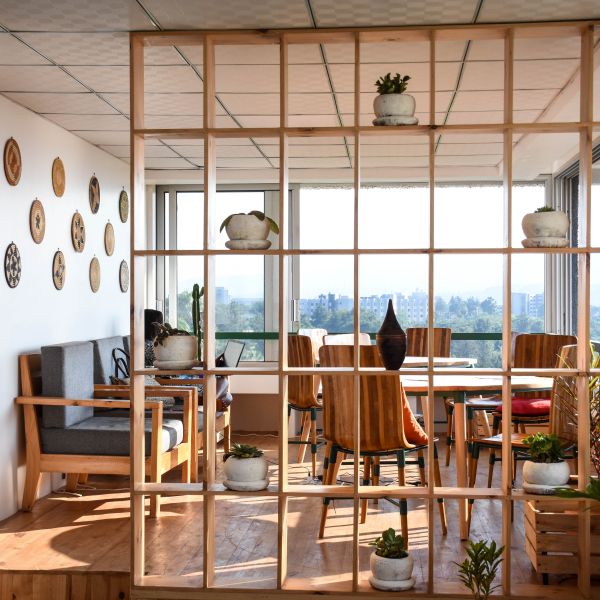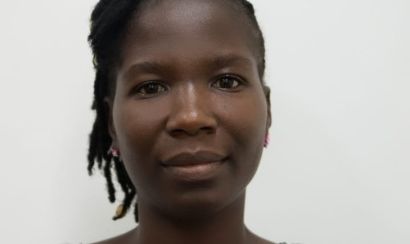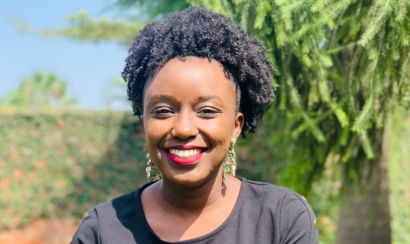In My Own Words: Sian Wanjiru
Why I swapped chemical equations for social impact
Sian is a passionate strategist with a background in manufacturing and business consulting. But her drive for performance improvement goes far beyond factory floors and business corner offices. Now, she's using her skills and proven experience to set up strategies that help us better support our teams and the 4.8 million farmers we serve.
In this piece, Sian Wanjiru shares her inspiring journey from the world of chemical engineering and business to social development.
Let's start with a bit of nostalgia! Picture yourself back at the beginning of your career journey. Where were you and how did it lead you to One Acre Fund?
My resume is like a rainbow because it represents my diverse experiences in different industries. As they say, things only make sense in hindsight. Now, I can make sense of my diverse career journey.
I studied pharmaceutical chemical engineering at the University of Leeds, and my first job was in manufacturing process improvement. I then joined Syngenta as a Process Improvement Lead. Four years later, I transitioned to consulting, supporting financial institutions, healthcare and agriculture organizations, not knowing that agriculture would become a main theme in my career.
I later pursued an MBA at the University of Cape Town and participated in an exchange program to Kellogg School of Management in the U.S. During this time, I joined McKinsey as a consultant, working with various institutions.
While at McKinsey, I longed to do more work in the development or public sector spaces. I secured a role at Africa CDC in Addis Ababa and eventually, One Acre Fund reached out about a potential role. I applied, and here we are.
You speak passionately about learning and development. Why is self-development important to you?
My entire career has focused on improvement, and I truly believe that continual improvement and lifelong learning are essential. As the saying goes, ‘You don't know what you don't know.’
I am a generalist, which allows me to be adaptable, flexible, and open to learning. Early in my university days, I realized the importance of staying employable and relevant. Things are always changing, and it is crucial to keep up and continually expand our knowledge.
Additionally, I have found that adult learning is enjoyable because it allows you to choose what you want to learn. While passing exams is important, it is the personal understanding and growth that truly matters.
As part of the Office of the CEO, what are some of the responsibilities you have managed?
When I started at the end of 2021, 80% of my work focused on initiatives related to the organization's DEI (diversity, equity, and inclusion) commitments. Our biggest project at that time involved compensation and benefits. I supported decision-making and coordination, particularly in policy reviews and improvement recommendations.
One key project I was involved in was the Benefits Project which ensures that all staff have access to adequate retirement plans. Additionally, the performance management project stands out for me. I was part of the team that developed a standardized job description template to clarify roles and assist with performance reviews. I then led a job evaluation project to ensure roles were correctly leveled and clarified to staff.
Recently, I have been focusing more on finance and tech projects, collaborating with teams to improve systems. I also led the organization of our recent strategy summit which brought together over 90 One Acre Fund leaders to discuss, share and shape organizational strategy

Why do you think it's important to have women like you and others in leadership?
Seeing women in leadership roles is truly inspiring. For example, Michelle Kagari, One Acre Fund’s Senior Director of Government Relations and Policy, brings a wealth of experience and is a great decision-maker at the senior level. Women like Michelle demonstrate that success in leadership can be achieved without conforming to traditional expectations, a challenge I believe many women face.
In the past, women often had to emulate men to be recognized in leadership positions. Observing leaders like Michelle reassures me that success is possible without being the loudest or most argumentative. Furthermore, these women mentor and support others, continually making space for more women at the decision-making table. Although we have not reached full equality yet, strong women are paving the way forward.
How do you manage all those projects and remain productive?
It's a work in progress. One key strategy has been setting boundaries at work. For example, my previous manager, Andrew Youn, showed me how to manage my energy rather than just my time. This involves understanding my energy levels throughout the day and scheduling tasks accordingly.
I reserve my mornings for focused work because that's when I am most productive. This is crucial since I handle multiple projects and need to collaborate with many people. Initially, I struggled to complete work during the day and often ended up working late, which was exhausting. Now, I block out my mornings for uninterrupted work and schedule meetings in the afternoons when my energy is better suited for interactions. I also try to have a meeting-free day, usually Friday, to catch up on any pending tasks.
Outside of work, I have started exercising in the mornings, which has significantly boosted my energy levels. I also make a point to have lunch away from my laptop to disconnect for a bit. A crucial realization has been that most things aren't as urgent as they seem. Remembering that no one's life is on the line if I don't send a document immediately helps reduce stress.
If you could go back in time and give yourself one piece of advice at the start of your career, what would it be?
Things have a way of falling into place!
I would tell myself not to stress or be overly anxious because things will work out. Be intentional about making them work, but remember it's not the end of the world if they don't. After graduating with a masters in engineering, it took me a year and a half to get a job, and at the time, I felt like a failure. Now, it's just an experience I went through. It impacted my confidence at work, but if I had known things would work out, I would have been less stressed and anxious.

Check out our job openings!
Ready to make your mark? We're on the lookout for more talented women to join our team. Check out our open vacancies here! View Open Roles



